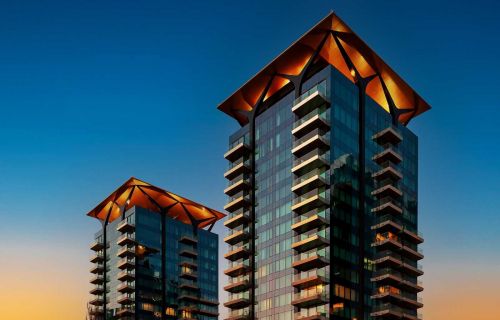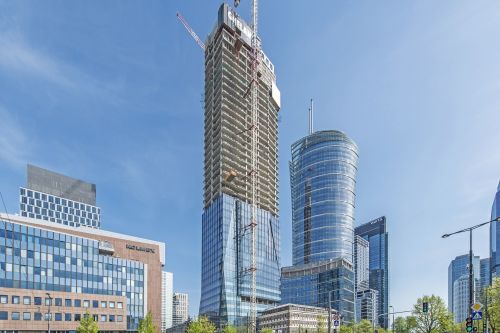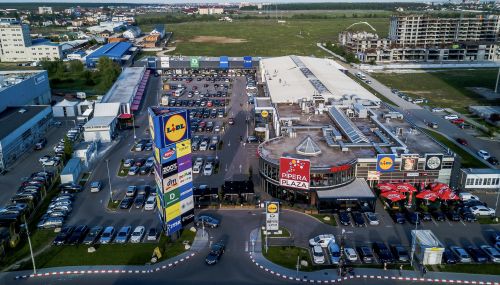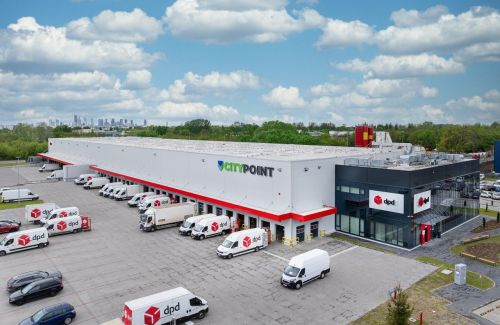Sustainability with room service
Green projects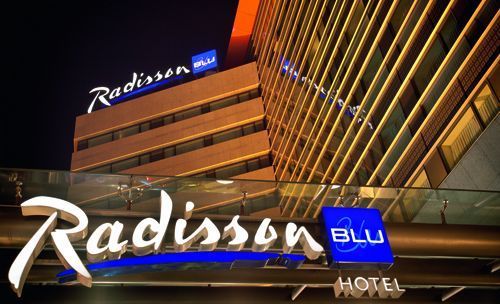
At first glance there is a bewildering number of ecological hotel certification schemes on the market: Czysta Turystyka is awarded by the Environmental Partnership Foundation; there is also Green Globe, which has accredited over 158 hotels in Europe, including the Mövenpick Hotel in Prague; there are also two schemes both named Green Key: Green Key Global is based in the United States but currently has few registered hotels in Europe (and none in the CEE region), while Green Key run by the Foundation for Environmental Education is one of the more dominant schemes for this region. This is only the beginning of a long, long list. And to add to this plethora of labels the hotel chains themselves will often create their own ecological schemes, such as Planet 21 (Accor) and Green Engage (InterContinental Hotels Group). When it comes to LEED or BREEAM certification, although both schemes have numerous hotels registered in their home markets, few hotels have been registered in the CEE region. A number of questions spring to mind: Why are there so many ecological schemes? Why are so few LEED and BREEAM certificates issued to hotels? And how important is ecology to the hotel chains?
Aerated taps and LED lighting
When you ask the hotel chains themselves, they appear very concerned about environmental matters. At Starwood Hotels & Resorts, all the hotels in the portfolio have their own green council responsible for finding and implementing green solutions. Any savings are then confirmed by a third-party ecological audit that is held every year. The chain has committed itself to reducing energy consumption by 30 pct and water consumption by 20 pct by 2020 on a 2008 baseline. Already, the Sheraton in Warsaw is very close to meeting its water reduction target, says Artur Zawadzki the executive assistant manager of the hotel and head of its green council. This has been achieved through a 40 pct reduction of water usage in the rooms. “We have made water savings by installing low-flow showerheads and aerators in the taps,” he says. Moreover the lighting of the hotel has been completely converted to LED in cooperation with Philips Lighting in an investment that Mr Zawadzki estimates at PLN 360,000. “We’re lucky not to be an old building,” says Mr Zawadzki: “the building is only 17 years old and came equipped with a building management system, which we upgraded quite recently. It was part of last year’s capital expenditure,” he explains. The system tells the management exactly how the building is being used (whether a window has been left open or a tap left running). When it comes to housekeeping, Starwood has its ABC programme to ensure the rooms are cleaned both efficiently and in an ecologically friendly manner. Wherever possible ecological cleaning products are used and they are applied early to give the chemicals time to work so as to use the minimum amount.
Think Planet and Green Engage
Carlson Rezidor also has similar targets with its Think Planet initiative. The group hopes to reduce energy consumption by 25 pct by 2016 with a 2011 baseline. The programme is based on five pillars, which include habits, tools, lighting, investment in new solutions, and the application of strict Think Planet standards across all new buildings and renovations. According to Inge Huijbrechts, the vice-president for responsible business for the Rezidor Hotel Group, the tools include many so-called “quick win solutions such as motion sensors, daylight sensors and buzzers on the walk-in freezers.”
As for the lighting, the group is currently switching to LED lights for all public areas. “The Radisson Blu Centrum in Warsaw has finished its LED re-lamping; all other Rezidor hotels will have this installed by the end of next year,” she says. The use of the Sprinx Cheetah ventilation system in the kitchens, which ventilates according to need, has saved 3 mln kWh of electricity across 20 hotels in Germany and Switzerland. The system has just been installed in the Radisson Blu in Bucharest. InterContinental Hotels Group also has its own ecological programme, called Green Engage. Maury Zimring, the director for corporate responsibility, and environmental sustainability at InterContinental Hotels Group, explains that: “IHG Green Engage is a global tool; it is an online environmental management platform, which enables us to manage the environmental impact of our hotels. It comprises two main elements: data tracking and reporting. “The system has been operational for the last three years, during which time it has already undergone two major overhauls. It provides step-by-step guides as well as case studies of how to implement over 200 ecological solutions. Originally, the group expected the system to result in energy savings of around 10–25 pct. Now for a hotel just starting to use the tool energy savings come to around 12 pct. Again, third party auditing is important, with all the data being validated by sustainability consultants Best Foot Forward. The Green Engage programme was put together in consultation with the US Green Building Council, so level ‘3’ Green Engage is equivalent to LEED pre-certification. As a result, the programme offers a cheaper way to become LEED certified. However, such certification is not a requirement but more of a recommendation. Indeed, none of the chains demand certification for their hotel buildings. In the case of the Rezidor Group, Inge Huijbrechts claims that this is because the group is – as she puts it – “asset light”. As she explains: “We don’t own the buildings, which often exist before we even enter the project. Although we have a number of hotels with BREEAM and LEED building eco-labels, we are not always in a position to demand such certification.” This point is reiterated by Kevin Turpin, the head of research for the CEE region of Jones Lang LaSalle. “Hotel chains quite often don’t own the buildings, while equipment changes within the building are the responsibility or at the discretion of the owner,” he explains. However, Mr Turpin also suggests another reason for the relative dearth of certificates: “For office properties certification can be used as a marketing tool, but when it comes to hotels, I’ve never booked a hotel room based on green measures.” Rafał Schurma, the president of the Polish Green Building Council, agrees. When it comes to the various hotels’ green initiatives, he states that: “I seriously doubt if the majority of guests know about these schemes.” In spite of this, research conducted by Starwood Hotels & Resorts indicates that the average hotel guest is far more aware of such ecological issues. In 2010, the group surveyed 500 guests from all of its Polish Hotels: 36 pct of the respondents were Polish while 64 pct were foreign; however, there were no significant differences in the answers of the two groups. A total of 94 pct agreed that ecology was an important issue in their lives, but more surprisingly 52 pct stated that green initiatives were a factor when choosing a hotel. What else might be prompting the hotel chains to pursue an environmental policy? Obviously there are cost savings to be made but another stimulus is also care for the reputation of the company: “We invest in green initiatives firstly because we believe that as a successful company we have a responsibility to take care of our environment. It is very important for our image to communicate that we don’t only think about the times that we currently live in but also want to leave something for the future generations,” declares Agnieszka Rog-Skrzyniarz, the PR and communication director for Poland of Starwood. InterContinental Hotels Group has a similar approach: “IHG is committed to being a responsible business, an objective which underpins each of our strategic business priorities. Our IHG Green Engage programme is a core part of this commitment,” says Mark Debenham, the manager of global public affairs for IHG.
Questions of accreditation
However, there appears to be a state of confusion in regard to ecological hotels. One reason for this is the very number of green qualifications for the hotel market. Recently Carlson Rezidor announced that it would have ecological certificates for all the hotels in its chain by 2015, but its policy has not been to apply for one certification standard for all its hotels. Instead its policy has been to choose the dominant certificate in any given market. Hence it has hotels registered under the Green Tourism Business Scheme in the UK, the Green Hospitality Award in Ireland and the Nordic Swan in the Nordics. For the CEE region the dominant standard appears to be the Green Key certificate from Denmark, but just to add to the labelling muddle, the Americans also run an international hotel certification scheme with the very same name. Slowly there does appear to be some consolidation with the certificates. For example, up until last year the Sheraton in Warsaw was certified under the Czysta Turystyka scheme, but this has now been abandoned in favour of Green Key (the Danish certificate). Starwood now has Green Key certificates for all its hotels in Poland bar one, including the Sheraton Warsaw, the Sheraton Sopot, the Sheraton Poznań and the Westin Warsaw. The Bristol in Warsaw has not yet had time to be certified after its recent refurbishment. Green Key, which is run by the Foundation for Environmental Education, is clearly one of the strongest certificates with certified hotels throughout the CEE region, including 16 hotels in Estonia, twelve hotels in Poland, and three in the Czech Republic. “Internationally, there are 112 criteria, most are imperative while some are guideline criteria,” explains Finn Bolding Thomsen, Green Key’s programme director. The certificate also depends on third party certification every two years, with each country able to add to the criteria to suit local market conditions.
Trend or no trend?
But what of those who have opted for more traditional building certificates. In Poland, Hampton by Hilton Warsaw City Centre on ul. Wspólna in Warsaw (a project that has yet to be built), has been registered for LEED, while Zdrojowa Invest is at the consulting stage of whether to apply for LEED certification for two hotels that it wishes to build in its Baltic Park Molo project in Świnoujście, and Andel’s hotel in Kraków has been certified with BREEAM In-Use. And that’s about it. Hampton by Hilton Warsaw City Centre Hotel is aiming for LEED ‘Gold’ certification. “The building is projected to use 40 pct less energy than the ASHRAE 90.1-2007 baseline standard. The use of highly efficient plumbing fixtures will result in a decrease of over 40 pct in potable water usage and the storm water runoff will be reduced by 80 pct compared to the current conditions,” explains Manuela Haromy, the press representative for S+B Gruppe, the developer of the building. As for the Andel’s hotel in Kraków, the building can still be regarded as a work in progress: “Currently we have an asset rating management of 55.35 pct and a building management certificate of 28.6 pct. We are planning to improve the rating of the property management from ‘Pass’ to ‘Good’ or ‘Very Good’ by creating an environment and media consumption strategy as well as an action plan,” explains Maria Makal-Młynarska, the general manager of the Andel’s Hotel Cracow. The property owner has applied for BREEAM for all the properties in its portfolio. As for whether the two hotels in the Baltic Park Molo project are to be certified: “The decision will be made soon after detailed verification and cost analysis based on a report prepared by an expert advising Zdrojowa Invest on the viability of LEED. As far as we know there are no plans in Poland for hotel LEED certification and there are no certified LEED hotels in Europe, with only a few in the USA,” says Renata Sobczyńska, the communications director for Zdrojowa Invest. For Rafał Schurma this is all clear evidence that soon many new BREEAM and LEED hotel schemes will be announced: “First it started with offices, then with retail and industrial buildings, and now it has moved onto hotels,” he enthuses, claiming that the pace of certification is sure to pick up tempo and pointing out that BREEAM, which has recently been more popular in Poland than LEED, does not announce registrations (therefore numbers may be even higher than anticipated). For JLL’s Kevin Turpin, the trend seems less clear. When asked why there are so few certified hotel buildings in the CEE region, he replied that: “It partly comes down to legislation. By 2020 all buildings in the EU must be close to net zero emissions. But in the CEE region, the legislation is behind the curve. There is a new requirement for building energy certificates, but this requirement is frequently not policed.”
One of the problems seems to be that hotels are very different to office buildings. For example, water usage in bathrooms is minimal for office buildings, and the tenants of an office block hold long term lease contracts whereas a hotel guest might only stay the night. As Kevin Turpin points out for hotels: “It’s difficult to control the occupants of the building. You can’t control how long someone runs the shower, for example,” which he believes is the reason that many hotels have formulated their own ecological policies: “In some cases the only thing they can manage is the operation of the property,” he claims. Rafał Schurma has no confidence in many of the hotels’ green credentials: “I’m very sceptical of schemes produced by single operators for their own purposes despite all the best will and intent. Eco-certification must have three features: it must be multi-criteria, established by an independent NGO, and must include third party auditing,” he says. The hotel chains clearly take environmental matters very seriously, but whether best ecological practice is to be standardised across the hotel industry and whether more hotels will seek ecological certification not just for their operations but also for their buildings, are questions that have yet to be resolved.












































